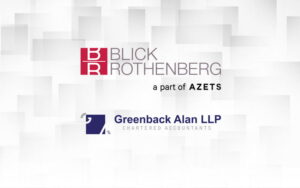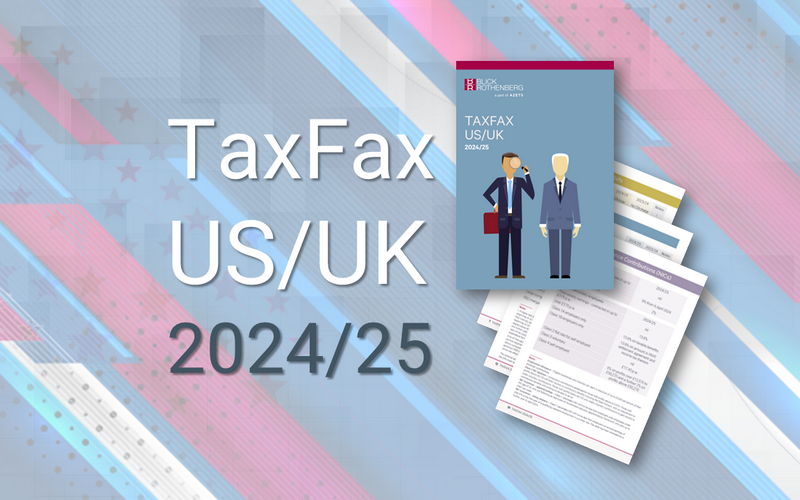
US Insights
The US Federal Corporate Tax System
An overview of US Federal Tax
State Corporation Tax
Understanding US Tax for UK Businesses with New US Subsidiaries
Navigating the U.S. federal corporate tax system can be daunting for business owners. However, understanding how taxable profits are calculated, how federal tax is determined, and what filings are required can help you stay compliant and avoid unnecessary penalties. This article aims to provide a clear and simple explanation of these key aspects, along with a brief overview of state corporation rules and common book-to-tax adjustments.
Calculating Federal Corporation Taxable Profits
Federal corporation taxable profits are calculated by starting with the corporation’s gross income and then making various adjustments. Gross income includes all income from whatever source derived, such as sales revenue, interest, dividends, and rents. From this gross income, corporations can deduct ordinary and necessary business expenses, such as salaries, rent, and supplies, to arrive at their taxable income.
However, not all expenses are deductible, and some may be subject to limitations. For example, entertainment expenses are generally not deductible, and there are specific rules for the deductibility of meals and travel expenses. Additionally, corporations must follow special rules regarding the timing and deductibility of certain types of expenses, such as depreciation and amortisation.
How Federal Tax is Calculated
For taxable years beginning after December 31, 2017, the corporate tax rate is a flat 21%. This means that once a corporation’s taxable income is determined, the federal tax is simply 21% of that amount. Prior to 2018, corporations were subject to a graduated tax rate structure, but the Tax Cuts and Jobs Act of 2017 simplified this by implementing a single flat rate.
Federal Corporation Tax Filings
Corporations report their taxable income and tax liability on Form 1120, U.S. Corporation Income Tax Return. This form must be filed with the IRS by the 15th day of the fourth month following the end of the corporation’s taxable year. For example, if a corporation’s taxable year ends on December 31, the Form 1120 is due by April 15 of the following year. Corporations can request an automatic six-month extension to file their return, but any tax owed must be paid by the original due date to avoid penalties and interest.
In addition to the annual tax return, corporations may also need to file estimated tax payments if their annual Income Tax liability is expected to be $500 or more. These estimated taxes are due in four quarterly instalments, and failure to pay them can result in penalties.
State Corporation Rules and Deductions
In addition to federal taxes, corporations may also be subject to state corporate income taxes. Each state has its own rules and tax rates, which can vary significantly. Some states have a flat tax rate, while others use a graduated rate structure. Additionally, some states may impose alternative taxes, such as franchise taxes or gross receipts taxes.
One important aspect of state taxation is that state corporate income taxes paid can be claimed as a deduction against federal corporation taxable profits[1]. This means that the amount of state tax paid reduces the corporation’s federal taxable income, thereby reducing the federal tax liability.
Common Book-to-Tax Adjustments
When preparing a corporation’s tax return, it is common to adjust the financial statement income (book income) to arrive at the taxable income. These adjustments are necessary because certain items are treated differently for financial accounting and tax purposes. Some common book-to-tax adjustments include:
Depreciation and Amortisation: For financial accounting purposes, depreciation and amortisation may be calculated using different methods than those allowed for tax purposes. As a result, adjustments are needed to reconcile the book and tax amounts.
Bad Debts: For financial accounting purposes, bad debts may be expensed when they are estimated to be uncollectible. For tax purposes, however, bad debts can only be deducted when they are actually written off.
Charitable Contributions: The timing and amount of charitable contributions that can be deducted for tax purposes may differ from those recorded for financial accounting purposes.
Meals and Entertainment: As mentioned earlier, entertainment expenses are generally not deductible for tax purposes, and there are limitations on the deductibility of meals.
Interest Expense: The deductibility of interest expense may be limited under certain tax rules, such as the interest expense limitation under Section 163(j).
Conclusion
Understanding the U.S. federal corporate tax system is essential for business owners to ensure compliance and avoid penalties. By knowing how taxable profits are calculated, how federal tax is determined, and what filings are required, you can better manage your corporation’s tax obligations. Additionally, being aware of state corporation rules and common book-to-tax adjustments can help you optimise your tax position and reduce your overall tax liability.
If you have any questions or need assistance with your corporation’s tax filings, it is always a good idea to consult with a tax professional who can provide expert guidance and support.
Want to know more?
If you would like to discuss the above, please get in touch with your usual Blick Rothenberg contact, or Michael Holland using the form below.
Our expert team
Personal tax is one of the most complex areas of wealth management and can significantly erode your wealth over time
Blick Rothenberg is considered to be market leaders in the taxation of non-UK domiciled individuals and offshore trusts, as well as cross-border personal taxation.
We have a strong base of clients in the UK and a broad and longstanding international focus too, acting for a large number of non-UK domiciled individuals and international families. So, we understand the complexities that US citizens face when living, working and operating businesses in the UK.
Whether you are a start-up entrepreneur, a wealthy family with complex affairs, or a business executive, our dual-qualified team of tax advisers will look after your US UK personal tax affairs as well as those of your business.
If you wish us to contact you or want to discuss your situation please complete the form on this page and one of our team will be in touch.















